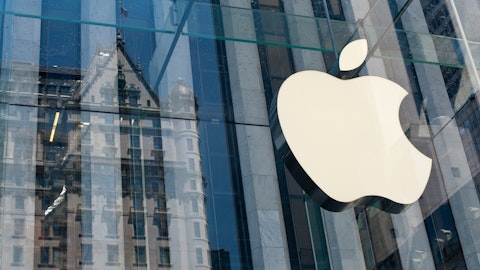Amazon.com, Inc. (NASDAQ:AMZN)‘s big move into the grocery business with its $13.7 billion purchase of Whole Foods Market, Inc. (NASDAQ:WFM) this week has made a winner out of several investors. The deal, valued at $42 per share, represented a significant premium to Whole Foods’ $33 share price at the close of trading on Thursday.
Most prominent among the deal’s winners is Barry Rosenstein‘s JANA Partners, which launched an activist campaign against the natural food chain in April after building a greater than 8% stake in the company in the first and second quarters of this year. After paying about $800 million to build that position, JANA Partners is in line to net a $300 million payday in just a handful of months.
At Insider Monkey, we track insider trading and hedge fund activity to uncover actionable patterns and profit from them. We track over 700 of the most successful hedge funds ever in our database and identify only their best stock picks. Hedge funds are like many other companies in that they bundle products (in this case, stock picks) together and sell them to customers (investors) as a package deal. That means you get their 73rd-best pick along with their best picks like Whole Foods, and who wants to pay exorbitant fees for a fund’s 73rd-best idea when you could instead invest in only their best ideas? Our flagship strategy has gained 44% since February 2016 and our stock picks released in the middle of February 2017 gained over 5 percentage points in the three months that followed. Our latest stock picks were released last month, which investors can gain access to by becoming a subscriber to Insider Monkey’s premium newsletters.
The fact that JANA Partners scores big on the deal is likely a fact of at least minor annoyance for Whole Foods Market, Inc. (NASDAQ:WFM) CEO John Mackey, who opened the chain’s first store in Austin, Texas in 1980. Mackey was vociferous in his reproach for the activist hedge fund firm, describing them as “greedy bastards” and “ringwraiths” (a Lord of the Rings reference) in a recent interview with TexasMonthly. He also claimed that they were trying to destroy the reputation of him and his company with propaganda.
Follow Whole Foods Market Inc (NASDAQ:WFM)
Follow Whole Foods Market Inc (NASDAQ:WFM)
Receive real-time insider trading and news alerts
” […] these guys just want to sell us, because they think they can make forty or fifty percent in a short period of time,” Mackey said.
Mackey also took shots at Rosenstein himself, citing the fact that the billionaire hedge fund manager owns the most expensive home ever sold in America, paying $147 million for a property in the East Hamptons in 2014. Indeed, Rosenstein’s firm stands to make just under 40% on the sale that it pushed for back in April, while Mackey himself will make just $8 million, a pittance compared to the deals that many CEOs receive upon their companies being acquired. Mackey has never been overly concerned about enriching himself however, having paid himself an annual salary of just $1 for years, in addition to eschewing stock options and bonuses.
Rosenstein was not alone in his take that major change was needed at Whole Foods Market, Inc. (NASDAQ:WFM) however, as several analysts were not overly optimistic about the company’s ability to reverse its downward spiral after six-straight quarters of same-store sales declines. Among the skeptics was Neil Saunders of retail consulting firm GlobalData, who stated that Whole Foods had “several fundamental flaws in its business model” which the company had done “seemingly little to correct” in recent years.
The deal is also a win for Amazon.com, Inc. (NASDAQ:AMZN), which immediately gained in market cap what it agreed to spend to acquire Whole Foods (though this could obviously change in the days to come). The e-commerce giant is expected to consider several options in its effort to disrupt grocers, including home delivery (of course), ready-to-pick-up groceries, and price cuts. REITs slumped on Friday as investors worry that shopping malls will now be at a greater risk of losing their grocer anchors in light of Amazon’s growing assault on them.
Follow Amazon Com Inc (NASDAQ:AMZN)
Follow Amazon Com Inc (NASDAQ:AMZN)
Receive real-time insider trading and news alerts
Disclosure: None






